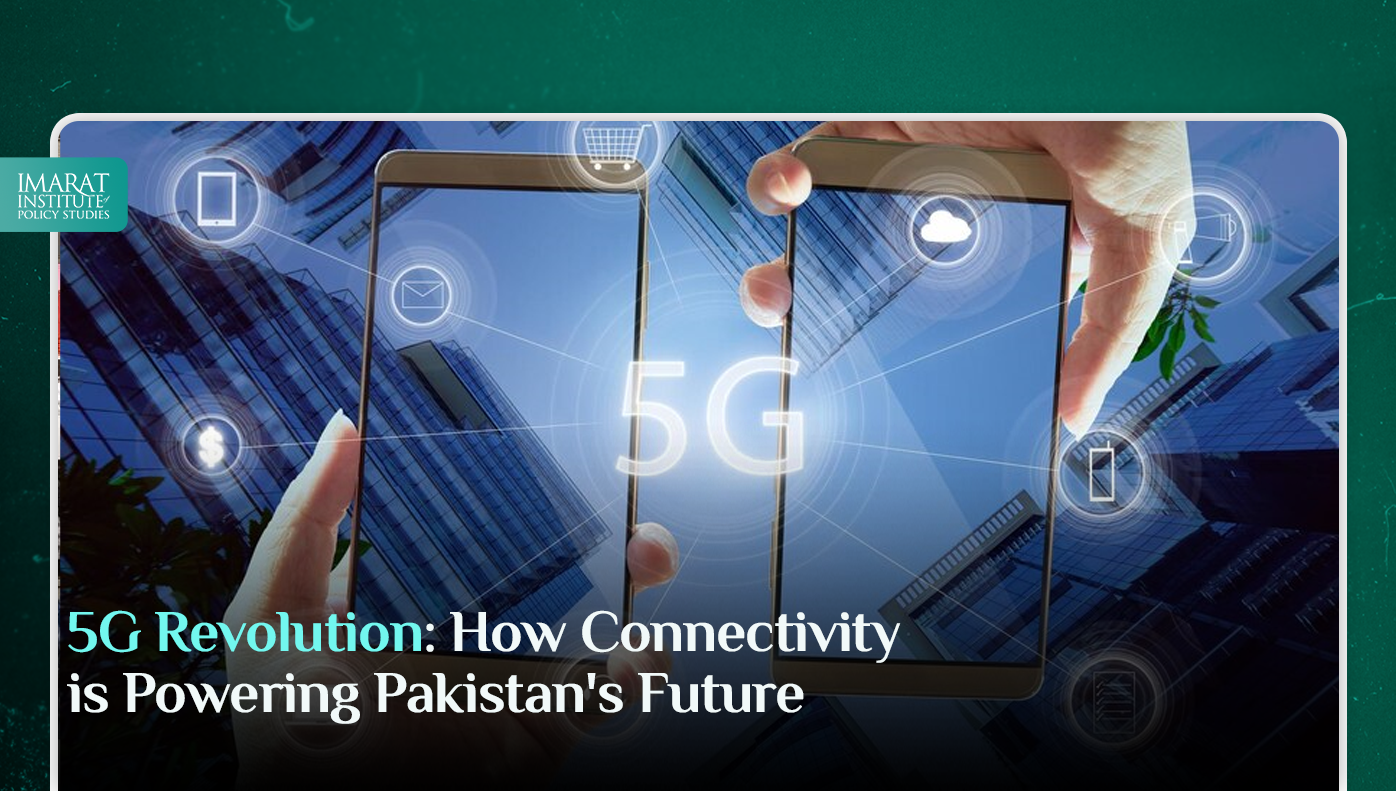In the heart of Pakistan’s bustling cities and remote rural villages alike, a technological transformation is underway that promises to reshape the very fabric of society. The advent of 5G technology heralds a new era of connectivity, one characterized by lightning-fast speeds, ultra-low latency, and unprecedented reliability. As the fifth generation of wireless technology, 5G holds the key to unlocking a myriad of opportunities across industries, empowering communities, and driving the nation towards a future of innovation and prosperity.
Accelerating Innovation Across Industries
The deployment of 5G infrastructure in Pakistan is set to unleash a wave of innovation across industries, revolutionizing the way businesses operate and interact with consumers. With speeds up to 100 times faster than 4G, 5G networks will enable real-time data transmission, paving the way for breakthroughs in fields such as healthcare, education, agriculture, manufacturing, and beyond. Imagine a future where doctors can perform remote surgeries with precision, farmers can monitor crop conditions from their smartphones, and factories can optimize production processes in real-time – all made possible by the power of 5G connectivity.
Enabling Smart Cities and Infrastructure
In an era of rapid urbanization and burgeoning population growth, Pakistan faces immense challenges in building and maintaining sustainable cities and infrastructure. However, the advent of 5G technology presents a unique opportunity to address these challenges head-on. By powering connected devices, sensors, and Internet of Things (IoT) applications, 5G networks will lay the foundation for smart cities equipped with intelligent transportation systems, efficient energy management, and enhanced public services. From traffic management and waste disposal to public safety and environmental monitoring, the possibilities for improving urban living through 5G are virtually limitless.
Empowering Digital Economies and Entrepreneurship
As Pakistan seeks to position itself as a global player in the digital economy, the rollout of 5G networks will be instrumental in unlocking new opportunities for entrepreneurship and economic growth. With enhanced connectivity and access to high-speed internet, startups and small businesses will be able to leverage digital platforms to reach global markets, innovate new products and services, and drive job creation and economic prosperity. Moreover, the proliferation of 5G-enabled technologies such as augmented reality (AR), virtual reality (VR), and artificial intelligence (AI) will fuel the development of new industries and business models, further catalyzing Pakistan’s digital transformation.
Revolutionising Healthcare and Telemedicine
In a country where access to quality healthcare is often limited, 5G technology has the potential to revolutionize the delivery of medical services and improve health outcomes for millions of Pakistanis. Through telemedicine platforms, remote patient monitoring, and virtual consultations, 5G-enabled healthcare solutions will enable patients to receive timely medical care regardless of their location. Moreover, the high bandwidth and low latency of 5G networks will facilitate the transmission of large medical data files such as diagnostic images and patient records, enabling healthcare providers to make more informed decisions and deliver personalized treatment plans.
Transforming Education and Remote Learning
The COVID-19 pandemic has underscored the importance of digital connectivity in education, highlighting the need for robust infrastructure to support remote learning. With 5G technology, students in even the most remote areas of Pakistan will have access to high-quality educational content, interactive learning tools, and virtual classrooms. By leveraging the power of 5G-enabled technologies such as augmented reality (AR) and virtual reality (VR), educators can create immersive learning experiences that engage students and enhance their understanding of complex concepts. Moreover, the scalability and reliability of 5G networks will enable educational institutions to accommodate growing enrollments and adapt to changing learning needs, ensuring equal access to education for all.
Addressing Connectivity Divide and Digital Inclusion
While the promise of 5G is immense, it is essential to ensure that the benefits of this technology reach all segments of society. Efforts must be made to bridge the digital divide and promote digital inclusion, particularly in underserved rural areas and marginalized communities. Governments, telecommunications providers, and civil society organizations must work together to expand 5G coverage, reduce infrastructure costs, and ensure affordability and accessibility for all. Moreover, initiatives such as digital literacy programs and community outreach efforts will be essential in empowering individuals with the skills and knowledge needed to fully participate in the digital economy.
Conclusion
In conclusion, the 5G revolution holds tremendous potential to power Pakistan’s future, driving innovation, economic growth, and societal progress. By accelerating innovation across industries, enabling smart cities and infrastructure, empowering digital economies and entrepreneurship, revolutionizing healthcare and education, and promoting digital inclusion, 5G technology has the power to transform Pakistan into a truly connected and prosperous nation. As stakeholders collaborate to harness the full potential of this transformative technology, the future indeed looks bright for Pakistan in the era of 5G connectivity.
This article is written by Radma Nouman. Radma is a research analyst at the Iqbal Institute of Policy Studies (IIPS).



Leave a Reply